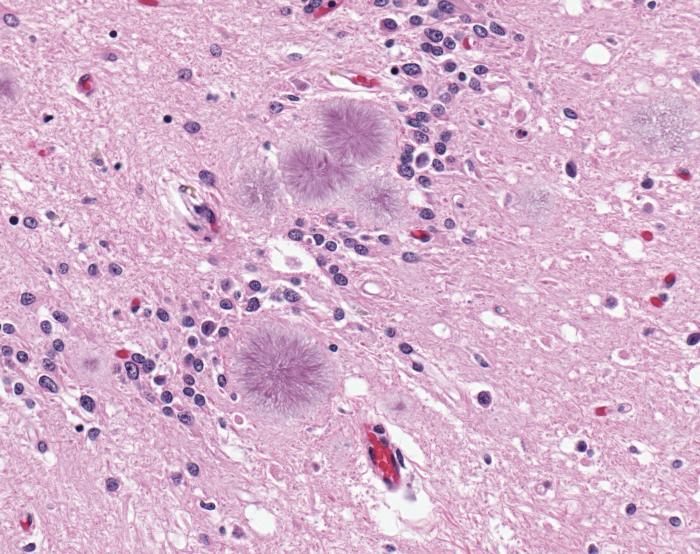Human 'Mad Cow Disease': 1 in 2,000 Brits Carry Abnormal Protein

One in 2,000 people in the United Kingdom carry a variant of a protein associated with Creutzfeldt-Jakob disease, the human version of mad cow disease, a new study finds.
The survey identified the abnormal protein in a wider age group than before, and in people with all genetic forms of the protein, the researchers wrote today (Oct. 15) in the journal BMJ. Although the disease itself is rare, infection with the protein could be quite common, say the authors of an editorial accompanying the study in the journal.
Variant Creutzfeldt-Jakob disease(vCJD) is a rare and fatal neurodegenerative disease, known as the human form of bovine spongiform encephalopathy (BSE), or mad cow disease. The disease is thought to result from an infectious type of protein called a prion, which clump together and cause irreparable brain damage.
The brain of a person infected with vCJD is often riddled with holes, resembling a sponge. [The 9 Most Bizarre Medical Conditions]
In the new study, researchers analyzed more than 32,000 appendix samples from anonymous people of all ages who had their appendixes removed at English hospitals between 2000 and 2012.
Sixteen of these samples tested positive for the abnormal prion protein, which translates to 493 cases per 1 million people, or 1 in 2,000 people. A similar number of people born between 1941 and 1960 tested positive, as with people born between 1961 and 1985, the results showed. No differences between men and women, or between geographic living areas, were found.
Furthermore, presence of the abnormal protein was not linked to any particular genetic type, or genotype, of the prion gene (everyone carries some version of this gene). Among the 16 samples that tested positive in the study, there was a higher proportion of a genotype known as "VV" on the prion gene, compared with the general U.K. population. But all of the 177 people known to have had the disease had the so-called "MM" genotype, the researchers said.
Sign up for the Live Science daily newsletter now
Get the world’s most fascinating discoveries delivered straight to your inbox.
People with the "VV" genotype may be more susceptible to developing the disease, or might never show any signs of the disease, the researchers said.
Although far fewer people develop Creutzfeldt-Jakob disease than carry the abnormal protein, scientists say additional research is needed to develop blood tests for the protein and to look at tissue from before the disease arises.
The first cases of Creutzfeldt-Jakob disease arose in the late 1980s and early 1990s, and were linked with exposure to contaminated meat. The United Kingdom has had only 177 clinical cases of vCJD to date, but previous studies have estimated as many as 1 in 4,000 people may carry the abnormal prions.
Still, it's not clear how many of these carriers will develop the disease, which often has its onset around age 60. Receiving a blood transfusion or undergoing surgery can potentially transmit the disease, so U.K. health agencies have taken measures to limit the risks.
Follow Tanya Lewis on Twitter and Google+. Follow us @livescience, Facebook & Google+. Original article on LiveScience.

Measles has long-term health consequences for kids. Vaccines can prevent all of them.
100% fatal brain disease strikes 3 people in Oregon









